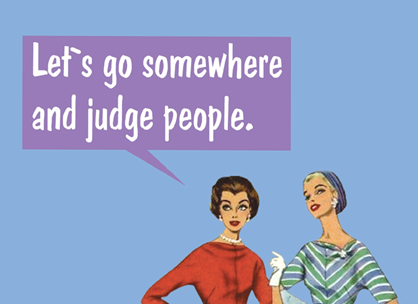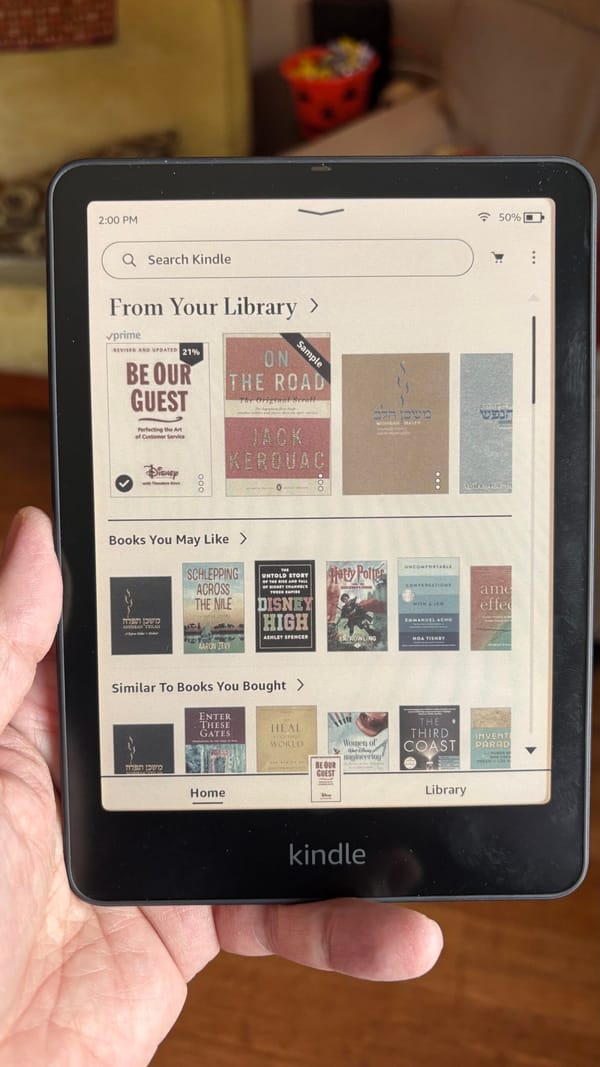Jewing It Wrong
Judging the religiosity of fellow Jews by the clothes they wear only works if everyone lives by the same rules. Thank God we don't.

In the lead-up to Passover last month, as always, I ended up in unexpected conversations with fellow Jews based around their assumptions about me because I wear a full-time kippah. I sometimes think that in 2014 people don't need to be reminded that we all--Jew and non-Jew--come in a variety of varieties. We're are such a mashed-up society these days, it's hard for me to understand why anyone still persists in assuming that just because someone does or doesn't dress a certain way, it's a shortcut to knowing their belief system.
Of course, that isn't the case. We all need reminding all the time to stop making assumptions about the people with whom we share the shechina-infused world around us. So forgive me, but after the beginning paragraph in this blog post, I'm a hypocrite in my sentiments.
I have a friendly, open-minded charedi penpal in Jerusalem. The warmest personal welcomes I ever receive from fellow Jews often from Orthodox acquaintances who don't miss a beat in discussing our differing levels of observance--sometimes admitting that in some things, I'm more strident than they are. And I know Jews whose dress and last names would never suggest their Yiddishkeit who are more observant than I am.
Yet even I see a woman dressed modestly or a man with a black kippah and payes and have a momentary urge of wondering if we would measure up as "valid" Jews in each others' eyes.
Shortly before Passover, I ran into a high-powered attorney in an elevator with whom I've shared a passing acquaintance. She was amazed I was cooking for Passover, and told me with a sense of shame in her voice, "I know you probably won't approve, but I'm going to my daughter's later that week and we're roasting a pig."
At that moment, I realized why our verbal exchanges had always been so brief. I had thought it was me. I had always felt a bit intimidated by her short tales of famous (and crazy) clients. In reality, all along, she had felt intimated by me. With my yarmulke on my head and her married head so clearly bare of a head covering, she thought I was judging her Jewishness. "I don't keep kosher," I told her. "But you're wearing a hat," she said. "I roll my own Jew, " I responded.
Things went south from there. Rare, seemingly, is the fellow Jew content to feel a sense of equality with a Jew with a different worldview. As she exited the elevator, she said with an air of superiority, "Oh well, then. I guess as long as it works for you it's still good." Meaning: I don't think I'm Jewish enough to make the kind of decision you've made regarding your level of observance, but that fact that you made it makes me think you're not as Jewish as I am, so neener-neener.
Remember what Felix Unger said happens when we assume things? Two people trading assness in an elevator is the nut of the above vignette.
Much nicer was the thing that happened at a midday reception at work on Monday. I was wearing my kippah as always. As lunch was served, A very high-level, Jewish leader of a national real estate firm launched himself at my seat, put his hand on my shoulder, and whispered earnestly in my ear, "I just wanted to make sure you're okay with the food. Do you need a kosher option? We can have them bring you something else. I know sometimes needs like that get ignored at events like this. Is everything alright?"
I thanked him, told him I don't keep kosher, and immediately let him know how touched I felt my his honest sense of concern. Then I told everybody else I ran into for the rest of the day. His thoughtfulness and open-mindedness at my answer was a great entree into discussing the work at hand, our mutual New York City origins, and the many ways there are to be validly Jewish in this world.
Or validly human, for that matter. Next time you see a stranger in our out of a head covering, wearing or bereft of religious garb of all flavors, it might be worth asking yourself if they would be able to tell your life story down to the way you get down (or not) with God. Because your answer about them would be exactly the same. Sure, you can take the easy way out and judge anyway.
Or you can open your mind, connect with them in all their similar and differing ways, and help heal the world. A lesson from Marty Stern, my hero this week. May we all move further and further away from the assumptions in our heads that divide us, and closer to each other in our hearts.
And if that's not the reason we're here, I'll eat my kippah, I will.




